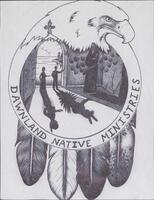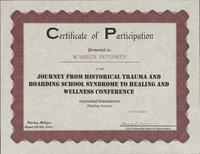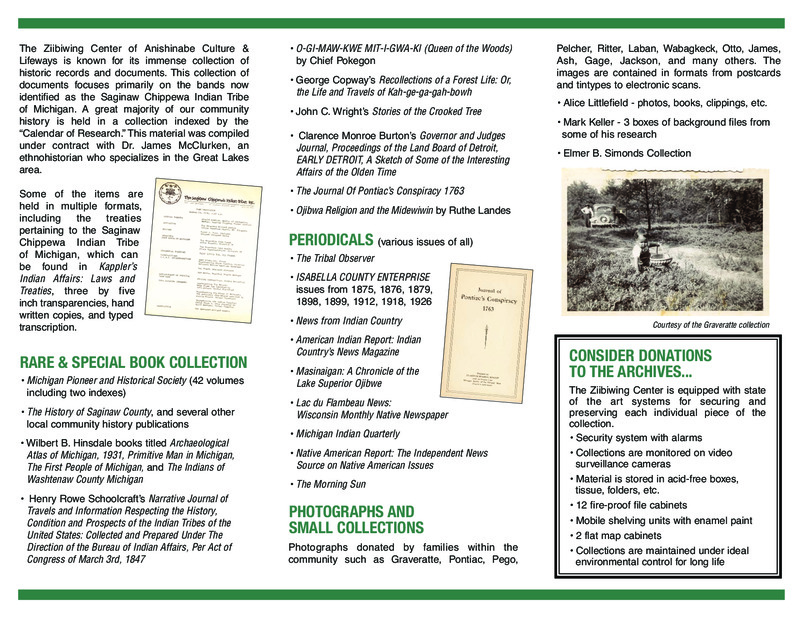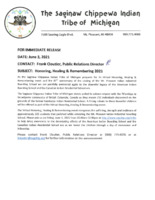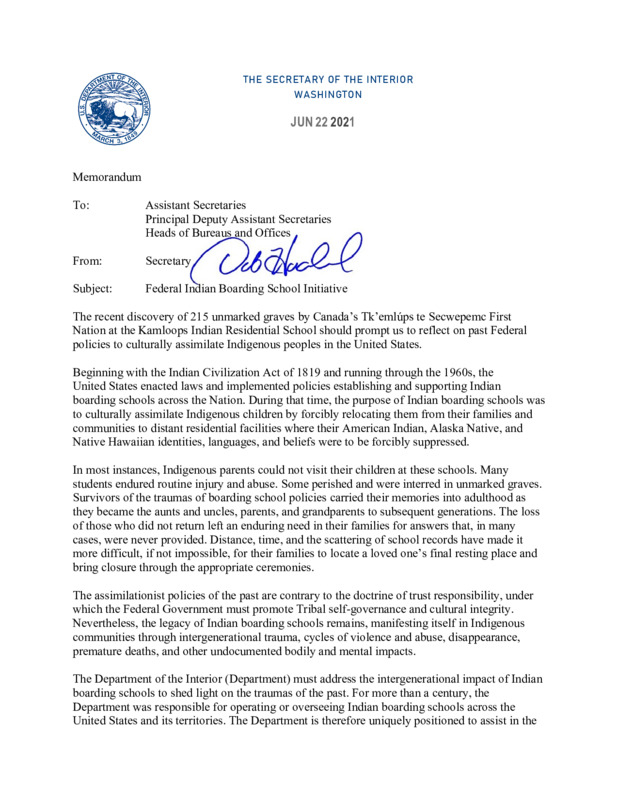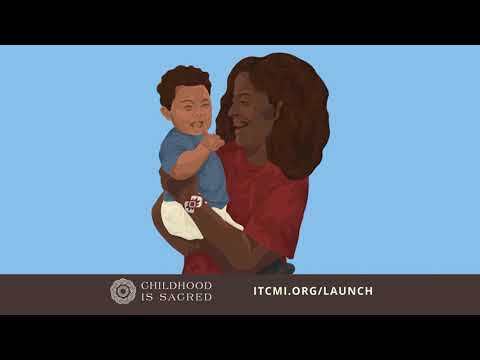This is to say that even when communities are broken and conquered, they are so much more than that—so much more that this incomplete story is an act of aggression.
Eve Tuck
Suspending Damage: A letter to communities
Fall 2009
A complete story of Michigan Indian Boarding Schools includes how the Native tribes have healed, and continue to heal, from the mental, emotional, and communal scars of colonization.
Healing cannot occur without first recognizing the source of the pain. Warren Petoskey is a well-known Native American activist, minister, counselor, elder of the Odawa and Lakota nations, and citizen of the Little Traverse Bay Band of Ottawa and Chippewa Indians. Petoskey is a grandson of Ignatius Petoskey, the namesake of the Michigan city. In the late 1990’s Petoskey founded Dawnland Native Ministries, whose objective was, “to build bridges of understanding with all peoples regarding the damage done by America's boarding school policies and their effects on the current generations” (Warren Petoskey Papers, n.d.) This mission was based on Petoskey's own experience with abuse and training as an addiction counselor. Petoskey traveled all over the state speaking at schools about his upbringing, boarding schools, and the impact on Native communities. His work within the Native community had a much more personal impact. One woman wrote to Petoskey about her grandfather’s experience, “The Elder Program restored that self-respect that our society had taken away. I cannot thank you enough” ([Thank you card], n.d.). Petoskey still resides in Michigan and continues to speak, write and educate about the Native American experience.
The Ziibiwing Center, in Mt. Pleasant Michigan, is another example of how Native Americans have taken back the narrative and pushed for native-led research. Formally called the Ziibiwing Center of Anishinabe Culture & Lifeways, the center houses centuries old artifacts to educate and preserve the history and present culture of the Saginaw Chippewa Indian Tribe of Michigan. Created in 2004, the center also actively pursues the repatriation of tribe artifacts through the Native American Graves Protection and Repatriation Act (NAGPRA). This includes caring for eight cemeteries in central Michigan. Descendants of the Odawa are encouraged to research their family heritage through the center’s extensive census and document collections.
While many non-indigenous Americans first learned in May of 2021 of mass deaths at Indian Boarding Schools, the Saginaw Chippewa Indian Tribe of Michigan was celebrating the 87th anniversary of the closing of the Mount Pleasant Indian Industrial Boarding school. The annual event, called Honoring, Healing & Remembering and other gatherings across the state provided an opportunity to honor the children who died or lost to the boarding schools. They also provide an opportunity to heal as a community through native traditions. The Sault Ste. Marie Tribe of Chippewa Indians Healing Ceremony and Memorial Walk included “Traditional Trauma Healing and Talking Circles.” These Native-led memorials recognize the damage but focus on the healing through fellowship and community.
Native Americans are still fighting the federal government for proper recognition of the mass murder and cultural genocide. The United States government has yet to publicly voice an apology for the crimes committed through government policy (Martin, 2019 October 12). In addition to memorials, the native community has pushed for national recognition of the harm committed by the Indian Boarding Schools. In 2021, some progress was made when the nation’s first indigenous Secretary of the Interior, Deborah Hall called for an investigation into former American boarding school sites and records. The objective is to identify potential mass graves and records identifying the final resting place of missing children. The outcome could provide closure to families of lost loved ones and improve relations between the United States government and the sovereign indigenous nations within their borders.
Despite the lag from the federal government and land grabs from private corporations (Janzer, 2021, para. 2), indigenous tribes continue to heal and prosper as a community. The final artifact, a promotional video from the Intertribal Council of Michigan Tribes stands in stark contrast to Warren Petoskey's description of his childhood. As a Native-led initiative, it clearly shows the love, joy, and play that exists in Michigan native communities. This short, 30 second video appropriately ends with, “This is how we heal the future.”

